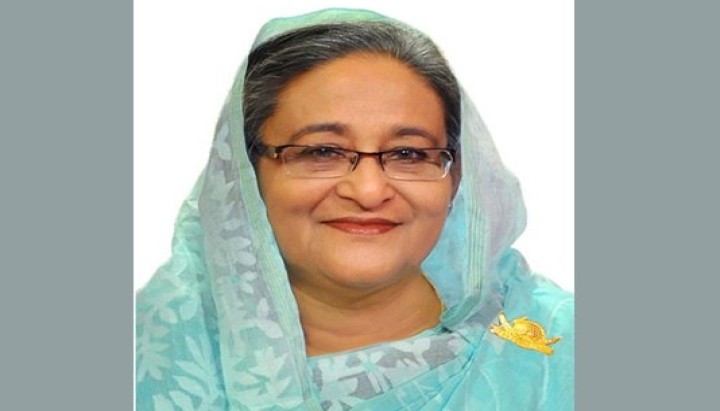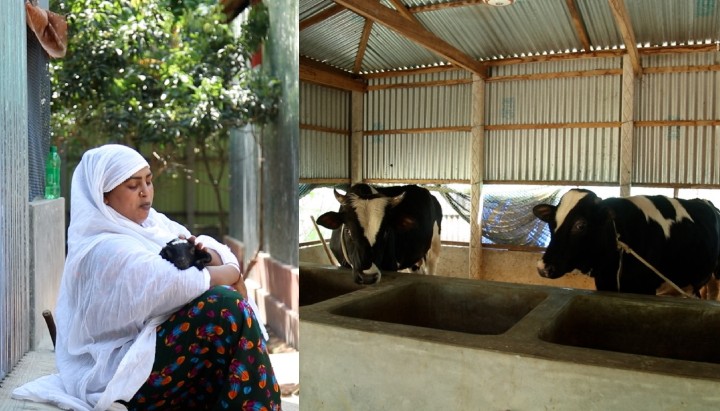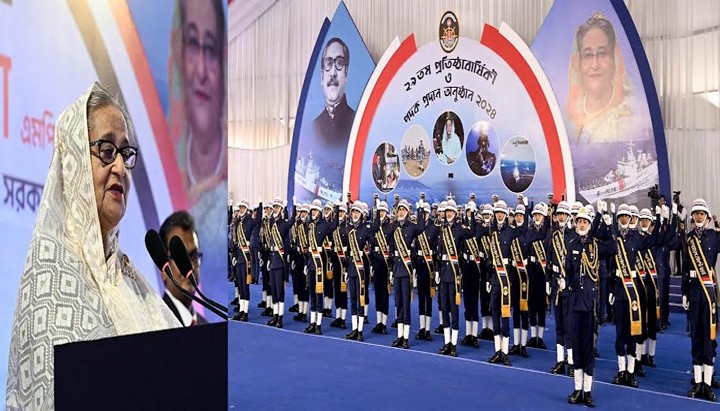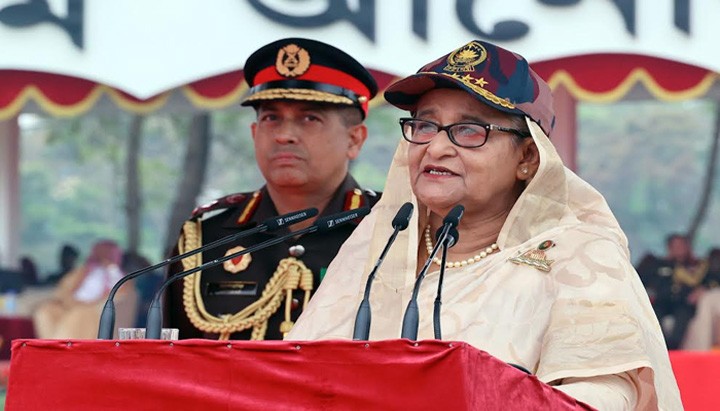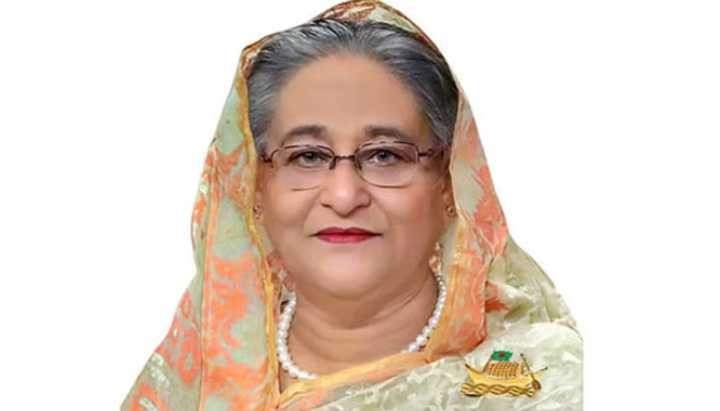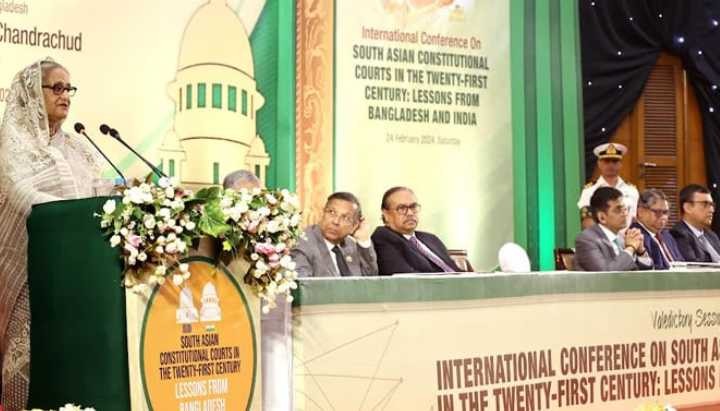Prime Minister Sheikh Hasina on Tuesday said Bangladesh
needs enhanced investment from its friendly countries, especially from the USA,
as it aspires to become a developed and prosperous country by 2041.
“Bangladesh has been recommended to graduate from the LDC in
2026. We are aspiring to become a developed and prosperous country by 2041. For
that purpose, we need enhanced investment from our friendly countries, especially
from the USA,” she said.
The prime minister said this at a meeting with the
first-ever visiting Executive Business Delegation of the US-Bangladesh Business
Council at her official residence Ganobhaban.
She said that Bangladesh is now an attractive investment
destination. Along with physical infrastructure, the government has upgraded
and eased the rules and regulations relating to investment and business.
“Bangladesh has the most liberal investment policy in South
Asia and that foreign investment is protected by acts of Parliament and
bilateral treaties,” she said.
Highlighting her
government's development programmes she mentioned that the entire country has
recently been brought under electricity coverage.
“We are upgrading our road, railway and water communications
by implementing some mega projects,” she said.
Hasina told the delegation that her government is setting up
100 special economic zones for domestic and foreign investors across the
country.
“We may earmark one of the zones exclusively for the US
investors, if you desire so,” she said.
She said that demographic dividend, and government’s focus
on developing skilled manpower ensures that investors here get skilled human resources
at competitive wages.
The prime minister said that Bangladesh-US friendship is
based on common values and shared interests and it is reflected in expanding
overall business relations.
“Our trade relations can be further strengthened with
duty-free access and other trade privileges in the US market,” she said.
In this regard she said Bangladesh is ready to commence Free
Trade Agreement-FTA negotiations with the US at an appropriate time.
She mentioned that export volume increased by more than USD
3 billion during the last five years. The export volume rose to USD 7.6 billion
in 2021-22 from USD 5.8 billion in 2016-17.
Since independence, she said, the US has been one of the
trusted development partners and it is contributing to Bangladesh’s
socio-economic progress. The USA is the single largest source of FDI and export
market for Bangladesh.
“I believe US companies will take the advantage and invest
more in potential sectors like power and energy, ICT, infrastructure, light
engineering products, mobile phone and electronic goods, automobile,
agro-processing, pharmaceuticals, ceramics, among others.”
She said that the government is pursuing a long-term growth
strategy for its citizens which is sustainable as acknowledged by the global
economists and organisations.
Hasina said that the government has taken pledge to realise
the “Golden Bangla’’, the dream of Father of the Nation Bangabandhu Sheikh
Mujibur Rahman to turn Bangladesh into a poverty- and hunger-free prosperous
country.
“With such strong prospect, I would now assure you of the best
possible policy framework to ease our business and investment climate,"
she told the delegation.
She hoped that the US-Bangladesh Energy Taskforce which was
launched in September 2021 will help advance energy cooperation between the
stakeholders of both countries.
“Likewise, the proposed US-Bangladesh Digital Economy
Taskforce will contribute in deepening the cooperation of companies of both
countries to ensure our sustainable development.
She hoped that the business delegation would be able to understand
the congenial atmosphere and feel confident for their potential investment in
Bangladesh.
In this connection, she said that Bangladesh is now
recognised for the state-of-the-art manufacturing factories in various sectors
like RMG, leather, plastic, jute, ICT, agro-processing and many more.
“It is our TIME now and please make your TIME taking
opportunities of our conducive investment regime. I wish every success of the
US-Bangladesh Business Council,” she said.
Board Chair of US-Bangladesh Business Council Jay R. Pryor, Board
members of the US-Bangladesh Business Council and business executives from
Bangladesh and US also spoke at the meeting.


